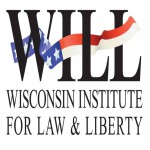WILL Releases K-12 Education Reform Agenda
Detailed policy roadmap shows how state can improve student outcomes
The Problem: Wisconsin’s K-12 education system is not working. Reading and math achievement has been stagnant for two decades while the rest of the country has experienced significant growth. About 80% of the students at Milwaukee Public Schools, the biggest district with 77,000 students, are not proficient in English. The results are similar across Wisconsin’s largest cities, including Green Bay, Madison, and Kenosha. Wisconsin has the largest black-white academic achievement gap amongst all 50 states. Rural school districts perform about as poorly as urban ones – though receive less attention. And many of the students who graduate from high school are tragically unprepared for college.
With our work ethic and ingenuity, Wisconsin should have the best school system in the country. It doesn’t – but we’ve created a roadmap to show state lawmakers and Governor Evers how to get there.
The Report: WILL staff have spent more than two years conducting extensive interviews with school leaders, education advocates, and national think tanks in order to come up with serious policy recommendations on how to improve student achievement in Wisconsin. The “Roadmap to Student Achievement” is one of the most comprehensive reform agendas for Wisconsin that is publicly available.
The Policies: Lawmakers need to get beyond the politics and instead double down on policies that have been proven to increase student achievement. WILL’s Roadmap explains the policies that can: 1) help high-performing schools expand to increase the number of seats, 2) give parents more educational opportunities for their students, and 3) make the education funding system more equitable and transparent.
Go Deeper: WILL explains how policymakers can:
1.) Incentivize high-performing public charter and private schools to expand.
- Minimize financial barriers for private choice schools to obtain loans and pay teachers and remove application barriers for all three school choice programs so the application process is easier for schools and families.
- Create equitable transportation laws.
- Provide schools with better access to facilities by fixing the vacant school building problem, create a competitive school start-up grant, and give schools access to capital through district referendums.
- Increase the number of independent charter schools through mandates for replication of existing charters and the creation of additional (and willing) authorizers.
2.) Create more educational opportunities for students.
- Remove burdensome restrictions on the Wisconsin Parental Choice Program that deter private schools from participating such as entry limitation that prevent schools from accepting students in 2nd-8th grades and 10th-12th .
- Give special needs students equal access to the Open Enrollment Program.
- Allow students from all schools to take courses at other schools (“Course Choice”).
- Enact a pilot Education Savings Account program.
3.) Promote a state education funding system that is equitable, transparent, and takes control over how federal funds are spent.
- Eliminate funding disparities between schools so that all students are treated equally.
- Prohibit school districts from skimming a portion of funding that belongs to charters.
- Exercise greater control over federal education dollars.
- Increase transparency over spending on K-12 public schools – like Georgia and Texas – so taxpayers know where their money is being spent.
“Roadmap to Student Achievement” can be read HERE and authors, CJ Szafir and Libby Sobic, are readily available to discuss the recommendations.
NOTE: This press release was submitted to Urban Milwaukee and was not written by an Urban Milwaukee writer. While it is believed to be reliable, Urban Milwaukee does not guarantee its accuracy or completeness.
Mentioned in This Press Release
Recent Press Releases by Wisconsin Institute for Law & Liberty
WILL Wins Preliminary Injunction in Defense of 1st Amendment
Apr 7th, 2023 by Wisconsin Institute for Law & LibertyLawsuit is a part of WILL’s Preserving Democracy Project






















